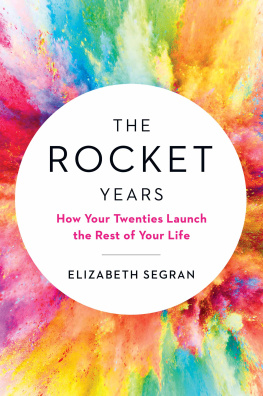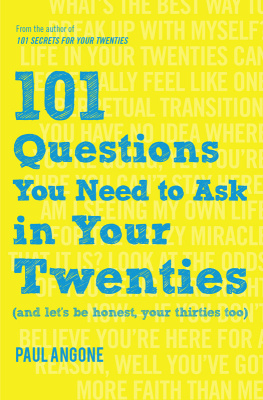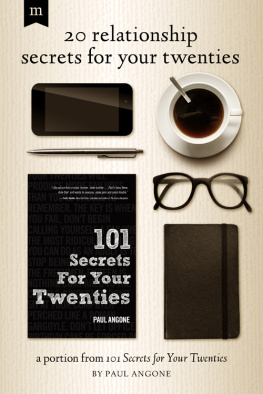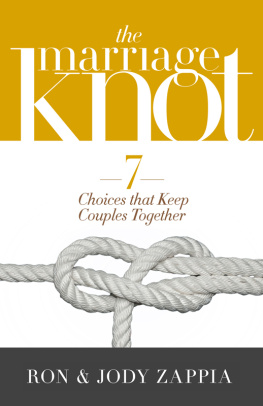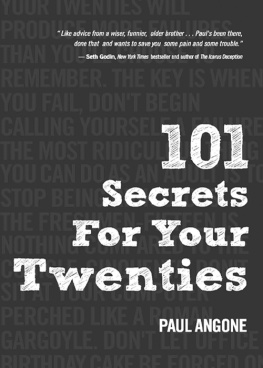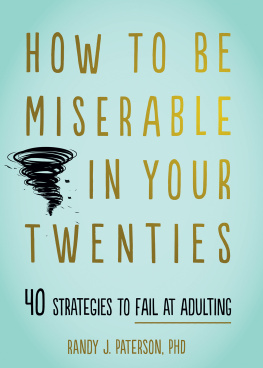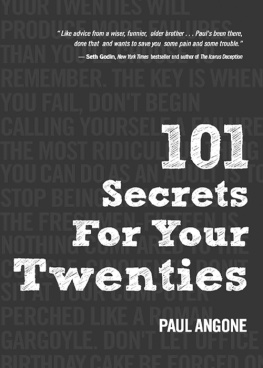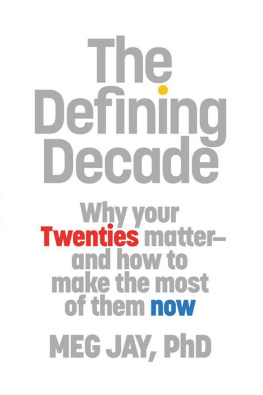INTO EVERYTHING I AM AND EVERYTHING I DO.
ILL SEE YOU ON THE OTHER SIDE.
A few days after my thirty-fourth birthday, at precisely 8:32 p.m. on a Wednesday night, the story of my life crystallized before my eyes.
My husband and I had just spent two hours putting our toddler to sleep. This nightly ritual involved a bath and soapy sing-along, several attempts to tackle Ella and squeeze her into onesie pajamas, reading Goodnight Moon fourteen times, then finally rocking her to the Hamilton soundtrack until she drifted off. (Even at the age of one, Ella had very specific tastes when it came to bedtime music.)
Ben and I collapsed in exhaustion onto our gray sofa, speckled with the slightest trace of spit-up, and gazed at the living room strewn with stuffed animals, wooden toys, crumbled crackers, and squished blueberries. We turned to each other and burst into laughter at the absurdity of the scene before us. How on earth had we gotten here? As we whispered, so as not to wake Ella, we remarked that it didnt feel like such a long time ago that we had met as college freshmen and proceeded to hurtle through our wild, confusing, marvelous twenties together.
Back then, life seemed so fluid and full of possibility. I saw my twenties as a once-in-a-lifetime opportunity to explore the world, take plenty of risks, and make mistakes. So that was precisely what I did. For me, those years were a whirlwind of impulsively breaking up with boyfriends on street corners, moving across the country on a whim, dancing at block parties till the wee hours of the morning, and spending my meager savings on last-minute backpacking trips to Cambodia and Prague. It was sublime.
Id assumed that an exit to adulthood sign would pop up somewhere in my twenties, pointing me to the moment when my decisions would suddenly matter. But that never happened. In the midst of all that carefree adventure, I made choices that shaped almost every aspect of my present reality. My life as a writer, wife, and mother is the direct result of how I reacted when my dream career went up in flames and my romantic relationships fell apart. And somehow, while I wasnt paying attention, I also built a tribe of friends, formed habits and routines, and cultivated values that will serve me for the rest of my life.
I wish there had been some sort of guidebook to help me navigate the choices that lay before me in those years. It would have been useful to have a map of the decade to spot upcoming forks in the road and cant miss attractions along the way. Most of all, I wish Id had a framework to help me wrestle with the existential questions that occasionally drifted into my mind, catching me by surprise while I was eating sushi with a friend or picking up soap at the drugstore. I remember asking myself: Is there really such a thing as a dream job? What about a soul mate? Does my ideal family involve having children? How can I bring my closest friends and favorite pastimes with me into the decades to come? How can I keep my activism and faith alive?
When it came down to it, the real underlying question was this: What will I do with my one wild and precious life? And the corollary: What will it take to create this life I so desperately desire?
On the sofa that night, my conversation with Ben sparked something inside me. I wanted to better understand how one short decade can have such a transformative effect on our whole lives. So I decided to write a book about it. I have spent the last two years revisiting my own twenties, delving into treasure troves of data and scholarship, and consulting with psychologists, sociologists, and other experts. All of that investigation has led to the book you are now holding. In many ways, its the guidebook I wish Id had at twenty-two.
Whether you are just about to embark on this magical decade of your life or youre in the thick of it, I wrote this book to help you think more deeply about what you want for your life and plot out how to get there. And if you are, like me, no longer in your twenties, this book is for you, too. I wrote it, in part, because I am interested in where the decisions I made in my twenties will take me as I move into my thirties, forties, and beyond. After all, it is never too late to correct course.
Writing this book has taught me that peoples lives dont work out because they do everything right the first time around. People who thrive simply refuse to accept situations that make them miserable: they choose to keep learning, growing, and working toward happiness all their lives. Most importantly, there is no one correct path or definition of success. There is no such thing as wasted time. There is no perfect life. (Nor would you want that; it would be terribly boring!) The research shows us that there are infinite ways to be happy.
This book is about helping you figure out what a meaningful life means to you. Though data helps you evaluate your options, the most valuable data point you have at your fingertips is you. In the end, your task is to understand who you arewhat you value, what excites you, what brings you joyso you can map out your own personal itinerary.
PURPOSEFUL EXPLORATION
As I began thinking about my twenties, I came across many ways to make sense of why this decade matters so much. One of my favorites comes from my friend Shilpa Shah, who started a fashion brand called Cuyana. Over dinner one night, she recalled some advice she had received when she was twenty-three and just starting her career. Her mentor at the time, Paul Yanover, told her that life was like a rocket. In your twenties, you are very early in your trajectory, with millions of miles left to go. A few degrees difference at launch could change where you will land. When youre young, you want the freedom to make mistakes, Paul told her. But you also need to think, Where am I going? Do you want Mars, or do you want the Moon?
The analogy makes sense to me. In our twentiesour rocket yearswe have more power than ever to chart our course in life and determine where we end up. Its an empowering feeling but also a terrifying one. I imagined my twenties as a kind of playground for me to mess around in before adulthood began. I wasnt entirely wrong; this decade should be about experimenting and taking risks. But the central tension in our twenties is feeling both the freedom to make mistakes and the responsibility to make good choices that will put us on the right track. The truth is that these are not really contradictory: part of the point of exploring is to learn about yourself and the world so you can make the best possible decisions down the line.
Ben, who is a professor of political science, likes to describe the importance of our twenties in a slightly different way. He tells me about the theory of path dependence, which social scientists use to describe how past choices influence future ones. The idea is that our initial decisions, as random as they are, often have a profound impact on our final outcomes.
There are examples of this all around us. A famous one is the QWERTY keyboard. The first typewriters had keys that were arranged alphabetically, but in 1873, a newspaper editor from Wisconsin found that he kept jamming frequently used letters. One day, he invented the QWERTY configuration to space out the most commonly used keys, hoping to slow down his typing and make his typewriter work better. Todays computers would have no problem with high-speed typing, and, in fact, many of us would prefer to type faster. Yet were still stuck with the good old QWERTY because it has proven impossible to get users around the world to agree on a new format, then get keyboard manufacturers to make it.
As I think back to my twenties, I recall having a vague sense that my choices would reverberate into my future. Every time I went on a first date or quit yet another job, my mind would project forward, trying to imagine whether I would be happy with that person or that career decades later. The problem was this: I did not have enough self-knowledge to know what I wanted my future to look like. I was trying to chart my course, but I wasnt exactly sure yet whether my final destination was Mars or the moon. Perhaps youve felt like this too.

